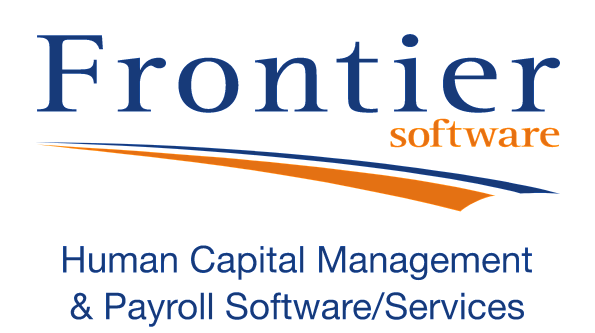
The post-COVID-19 world is new to many line managers. Here’s what you need to know about bolstering your leadership capabilities.
Economic pressures, wage freezes, and remote and hybrid working models all require managers to develop new competencies.
Combine this with a need to build and coach a cohesive team while maintaining focus on productivity and profitability, and you quickly realise today’s managers have their work cut out for them.
In a post-COVID-19 world, managers will face a set of unique challenges that their predecessors didn’t have to tackle. As the work environment evolves, the manager’s role and skill set must also adapt to effectively lead their teams.
The challenge
Some of the biggest headwinds today’s leaders have centre on the rise of remote working set-ups.
While flexibility has been great for business – and has increased retention of employees, generally speaking – it has also created challenges that managers didn’t have to deal with before the pandemic.
The big ones include having to maintain effective communication and collaboration with team members working in different locations and/or time zones; building trust and camaraderie despite physical distance; and effectively evaluating employee performance, tracking progress and productivity levels.
Getting employees up to speed on technological changes, as well as introducing new systems and processes (particularly around data security) can also be difficult for managers to grapple with, as can handling conflicts or clashes in a virtual environment.
Overall, the role of a manager in a post-COVID-19 world demands greater adaptability, empathy, and technological proficiency.
By acknowledging and addressing these challenges, managers can foster a successful and cohesive team and drive organisational success in the new work landscape.
The essential skills today’s leaders need to have
The role of a manager must evolve to effectively lead and support their teams.
Here are the key skills that leaders today need to have:
- Effective communication: Leaders must be exceptional communicators in both written and verbal forms. With team members working from different locations, clear and concise communication becomes crucial to ensure everyone understands expectations, goals, and tasks.
- Digital literacy: Managers need to be comfortable with technology and various digital tools used for communication, project management, and collaboration. This includes video conferencing, instant messaging apps, project management software, and cloud-based platforms.
- Empathy and emotional intelligence: Understanding and empathising with remote or hybrid team members’ emotions and challenges is vital. Emotional intelligence allows leaders to connect with their employees on a deeper level, offering support and fostering a positive work environment.
- Adaptability: The post-COVID-19 work environment is likely to continue evolving, so leaders must be adaptable and open to change. Being flexible and responsive to new challenges and opportunities will be essential for success.
- Time management: With team members working in different time zones and with varying schedules, effective time management is crucial. Leaders should be adept at scheduling meetings, setting deadlines, and coordinating tasks to ensure inclusivity, efficiency and productivity.
- Results-oriented approach: It becomes essential to focus on outcomes rather than just monitoring the number of hours worked. Leaders must set clear goals and performance metrics, emphasising results and accountability.
- Virtual team building: Building a sense of camaraderie and teamwork among remote employees is essential. Leaders need to come up with creative ways to conduct virtual team-building activities and maintain team spirit despite physical distances. Many offices have themed events, e.g., “wear a silly hat” or “bring a childhood keepsake” meetings, to foster discussion and the development of relationships beyond the limitations of their roles.
- Conflict resolution: In a dispersed team, conflicts may arise, and leaders must be skilled in resolving issues remotely. Active listening, understanding various perspectives, and facilitating constructive conversations are essential when managing conflicts.
- Inclusive leadership: Leaders should promote a culture of inclusion, ensuring that all team members feel valued and heard, regardless of their location. Being mindful of diversity and cultural differences is crucial in fostering a supportive work environment and for developing innovative solutions to challenges presented by remote work.
- Trust building: Building and maintaining trust among team members is critical for successful remote or hybrid teams. Leaders must demonstrate trustworthiness, provide autonomy to employees, and follow through on commitments.
- Employee development and support: Leaders should invest in the professional development of their team members and provide the necessary support and resources to help them succeed in their roles, even when working remotely. The provision of onsite, instructor-led, or remote-training opportunities must be considered.
By honing these essential skills, leaders can navigate the unique challenges of a post-COVID-19 work environment and create a cohesive, motivated, and high-performing hybrid or remote team. Effective leadership will be instrumental in achieving success and maintaining a positive work culture in this new scenario.
Frontier Software’s HCM solution, ichris, can assist remote teams and their managers by providing a means to facilitate the employee’s journey from hire to retire within an online environment.
The advantage offered by the ichris solution is that the software serves remote or office-based employees equally, eliminating the need for paper-based processes. The removal of the admin burden enables leaders to focus on leadership and the fostering of a positive and productive work culture in the post-COVID-19 world.
To learn more, book a demo with the team at Frontier Software today.










